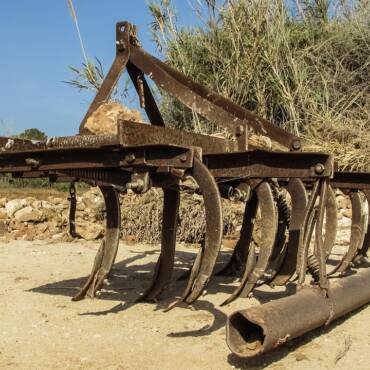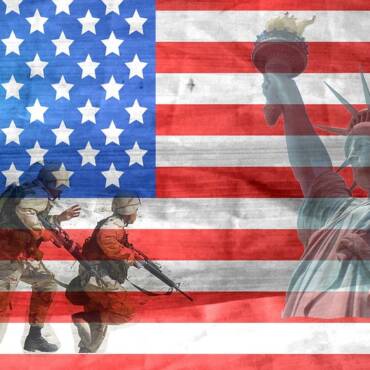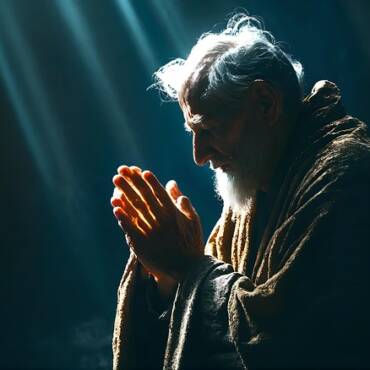Yeshua’s Hanukkah Message

By Sam Nadler
Some find it surprising that the only place in the Bible where we find the festival of Hanukkah mentioned is in the New Covenant (John 10:22-30). Here, in the context of this eight-day celebration, Yeshua taught that victory is found through faith in Him alone.
“At that time, the Feast of Dedication (Hanukkah) took place at Jerusalem; it was winter, and Yeshua was walking in the temple in the portico of Solomon. The Jews then gathered around Him, and were saying to Him, ‘How long will you keep us in suspense? If you are the Messiah, tell us plainly.’” – John 10:22-24
During the festival of Hanukkah that year, Yeshua was teaching in Jerusalem in the Temple in the “portico of Solomon” (Acts 3:11; 5:12). According to Josephus, first century Jewish historian, this was the eastern section of the walkway which surrounded the outer court of Herod’s Temple, and served as a shelter from the heat of summer and from the cold rain of winter. Since there were always people present for worship in this part of the temple, Yeshua used this as a center for informal teaching and preaching. This setting forms the backdrop of Yeshua’s “Hanukkah Message.”
The Savior from God
Each Hanukkah, our people remember the victory God gave to the Maccabees when they threw off the Syrians and restored true worship in the Temple. As each era brought new countries who ruled over Israel, each Hanukkah the Jewish people would desire Messiah to come and free them from yet another enemy. In Yeshua’s day, this enemy was the Romans. When the Jews approached Yeshua in the Temple, notice the question they raised: “How long will you keep us in suspense? If you are the Messiah, tell us plainly.” (John 10:24) This would be a timely question, for at this holiday people would be wondering, “Where is the Messiah, the greater Maccabee who can free us from our oppressors?”
Yeshua’s answer did little to satisfy their fleshly expectations: “I told you, and you do not believe; the works that I do in My Father’s Name, these testify of Me. But you do not believe because you are not of My sheep.” (John 10:25-26).
Why didn’t Yeshua just say, “Yes, I’m the Messiah”? An understanding of Hanukkah, the context in which Yeshua spoke these words, helps us to understand His answer. The people were wanting a Messiah who would be a political warrior to lead them in throwing off the Romans, just as the Maccabees threw off the Syrians. With a mere, “yes,” Yeshua would have been accommodating Himself to the people’s narrow expectation which was heightened at this time. Yet had He said, “no,” this would not have been true. So Yeshua wisely responds, “I’ve already told you.” In both word and deed, He had already repeatedly answered their question (John 8:58; 10:25).
God provides the eternal salvation that we need, not merely the temporary solution that we desire. At this time of year, let us ask ourselves, “Is my faith in God’s Word, or in my own expectations and experiences?” Like Job recognized, true faith sees beyond the immediate and trusts God’s wisdom and care: “Though he slay me, yet will I trust in him.” (Job 13:15)
In following the Maccabees, short-term faith was required. They pointed to a temple desecrated by an oppressive Syrian regime and said, “Let us defeat our enemies and rededicate the temple!” However, Yeshua goes deeper as He points to us and states that we are the ‘desecrated temple,’ and that we need to be cleansed and rededicated in order to walk with our God. The problem, O Israel, is not found outside of you, but within you. Our need is not for a quick fix of short-term problems, but for an eternal relationship with God.
The Shepherd to God
“My sheep hear My voice, and I know them, and they follow Me; and I give eternal life to them, and they will never perish, and no one will snatch them out of My hand.” – John 10:27-28
Messiah’s sheep have faith in Him: “My sheep hear My voice.” His sheep are His followers: “They follow Me.” There is mutual recognition and reciprocal action. The Shepherd knows and directs His sheep, and the sheep respond in obedience. Messiah guarantees eternal life to His followers.
This life comes from God by faith in Yeshua, who alone can relate us rightly to the eternal God. Furthermore, eternal life is a new kind of existence for believers. It is God’s own life. Through Yeshua, the fullness of God dwells within us, and His life will never end! God is immortal; those who believe in Yeshua will live on with Him. Messiah followed up on these words by saying:
“My Father, who has given them to Me, is greater than all; and no one is able to snatch them out of the Father’s hand. I and the Father are one.” – John 10:29-30
Yeshua’s statement that He is one with the Father is meant to give assurance to His followers. No one will snatch us out of His hand any more than from the “Father’s hand.” Defeat is found in measuring our life by our problem rather than by our God. Despite temporary trials, there is ultimate victory in Messiah. Yes, Messiah demands a greater loyalty than the Maccabees, because He provides greater security. Trust in Him as the Savior, Shepherd, and Son. Yeshua is the Victor, and following Him brings the victory!




Add Comment